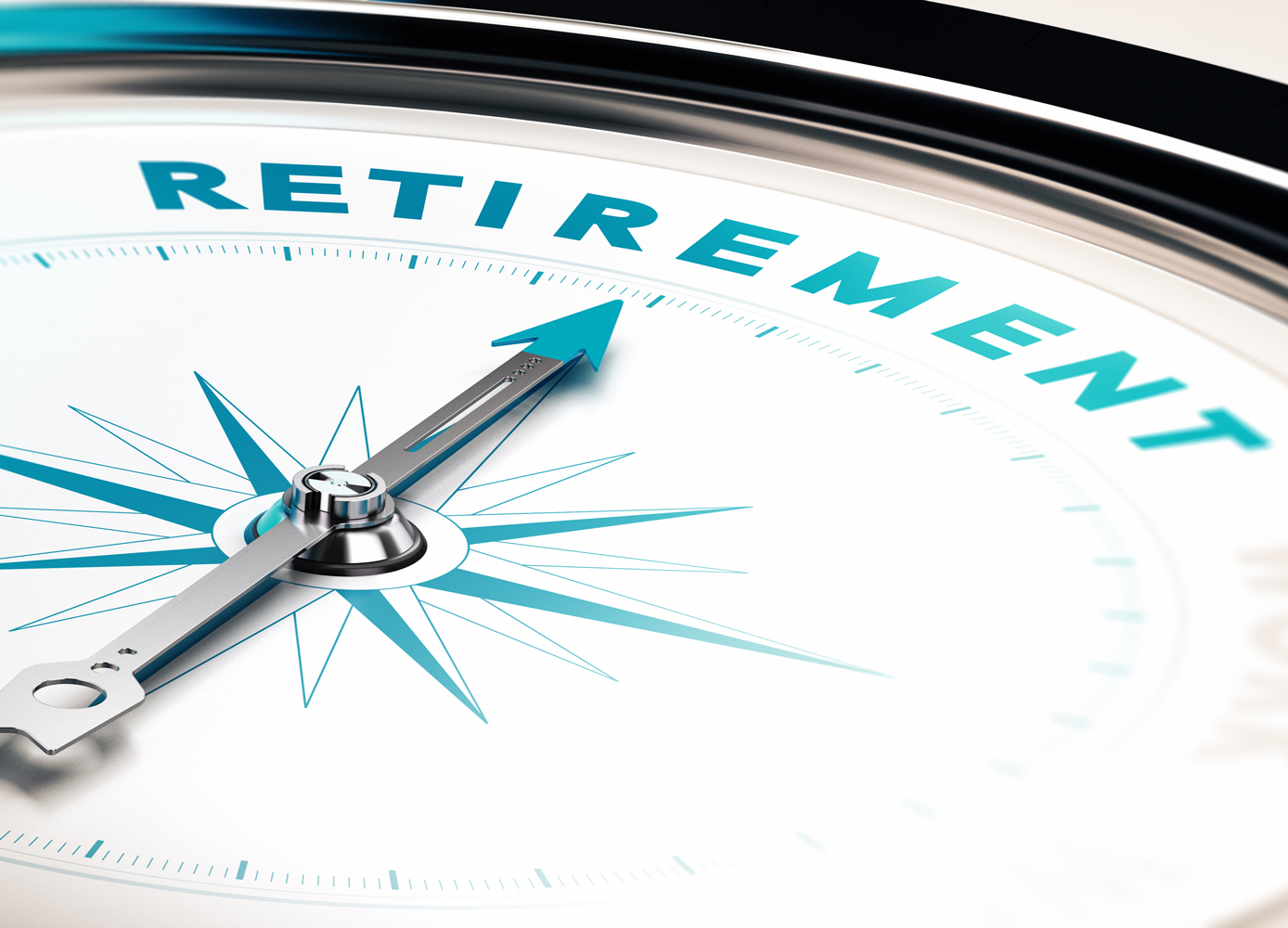Many couples spend more time planning a vacation than they do planning the rest of their lives together
By Wendy Haaf
Photo: iStock/gradyreese.
After a public presentation Lyndsay Green gave about her book Ready to Retire? What You and Your Spouse Need to Know About the Reality of Retirement (HarperCollins Canada, 2016), an audience member approached her and sheepishly told her the following story.
When he retired, he said, he set about renovating the vacation home he and his wife owned in a small community, assuming that they’d relocate there when she stopped working. After reading Green’s book, the man had passed it to his wife, noting that they were nearly ready for their retirement now that he’d finished preparing the cottage for year-round occupation.
“And she said, ‘I’m not living there—I want to live downtown!’” Green says. Asked why she hadn’t spoken up earlier about all the work he’d poured into the project, the man’s wife responded, “I just thought it was a project that would keep you busy for a few years.”
Tales of couples not discussing their retirement plans are surprisingly common.
“A lot of us get caught up in our lives and think, We’ll worry about that when the time comes,” says Kathy Fahey, a certified retirement transitions coach in Kelowna, BC.
Trepidation about how a longstanding relationship might change once both halves of a duo are free of work commitments may be another factor, says Kate Dack, a certified retirement coach in Victoria. “When I give a seminar and say, ‘We’re going to talk about the impact of retirement on spousal partnerships,’ the room suddenly goes very quiet,” she says.
“If there are flaws in the relationship, they’re going to be more pronounced when you’re spending more time together,” Fahey says. “And even a happy marriage is going to be rocked, because it’s a huge transition you’re making.”
Whatever the reason, many of us may spend more time planning a vacation together than we do weighing what we’re going to do—as a couple and individually—for a significant part of our lives. And while muddling through may sometimes work, it can have unpleasant consequences.
“Without a plan,” Fahey says, “we’re at risk for what I call the three Ds: depression, decline, and divorce.”
Studies suggest that anywhere from 25 to 40 per cent of retirees experience depression after the big event, often following a honeymoon period of between six months and two years. Part of the problem may be physiological changes that increase our susceptibility: according to Dack, as we age, levels of the chemical messengers dopamine and serotonin (which play a role in mood) decline, so “we’re much more subject to negativity.” That, combined with a feeling of upheaval and the lack of a guiding blueprint, can cause some people to become physically and mentally inactive and socially isolated—which can further erode physical and mental health.
Concerns about the effect on a relationship aren’t unfounded.
“According to the last figures I saw from Statistics Canada, about one in five people in their late 50s are divorced or separated,” Fahey says. “In the United States, divorces among people over 50 have doubled; for those over 65, the rate has tripled since 1990. It’s declining steadily in every other age group, but it’s rapidly increasing in those 50 and over.”
While some of these splits undoubtedly represent couples who simply delayed formally ending an over-in-all-but-name marriage until the kids were grown, the majority are likely due at least in part to the stresses involved in transitioning to a new and unfamiliar life stage.
Yet while change—or even thinking about change—can be uncomfortable, it also represents a chance to rekindle your relationship and discover a richer, more meaningful and satisfying way of life.
The first thing to keep in mind, Dack says, is that feelings of discomfort and upheaval are completely normal. “Things are going to change radically, and that’s going to feel a bit disconcerting in the beginning,” she says. Adjusting to post-work life, she adds, is a transitional process similar to that of marrying, embarking upon a new career, or becoming a parent. “People in transition feel nervous, and even grieve because there are losses of things they may have enjoyed about work, such as the structure, the sense of purpose, or the people,” she says. “I think it’s really comforting and reassuring when people understand that there’s a recognizable and common pattern and process of transition.”
For a couple, preparing for that transition means starting an ongoing series of discussions to begin building a shared vision of the future together.
“It’s all about communication,” Dack says, “which is an easy word to say, but not as easy for all of us to do successfully. I’m big on what I call building an energizing retirement vision—based on a review of each person’s needs—his or her top three needs. I do that with my clients, whether it’s in private sessions or in seminars. It’s a very enlightening process: it makes decision-making easier and it also creates greater understanding in the partnership.”
Some people are more comfortable doing this with the guidance of a retirement coach (some of whom, like Dack, have a background in clinical counselling or social work), either by telephone or in person. Others might prefer a DIY approach, at least at the start, and there are a number of books you can use as a jumping-off point (see “Resources” below).
For example, The Couple’s Retirement Puzzle: 10 Must-Have Conversations for Creating an Amazing New Life Together, by Roberta Taylor and Dorian Mintzer (Sourcebooks, 2014), sets out 10 such discussions, with the suggestion that after reading each chapter, partners separately write answers to a list of questions and then together compare the results, explaining the thinking behind each response.
No matter how you choose to proceed, there are a number of common elements to consider. Some of the key questions include:
When and how would each of you like to retire?
Do you want to retire completely or to continue working past traditional retirement age? If it’s an option, would you prefer to pull back gradually to part-time work or consulting? That might give you time to explore who you might like to become once you’re no longer defined by your job or profession.
It’s not uncommon for women who re-entered the workforce after staying home to raise children or to attend to other family obligations to be hitting their career stride just as their spouses are reaching burnout, which can sometimes trigger friction. “Putting pressure on your spouse to retire causes a lot of issues in a relationship,” Fahey observes.
For couples who opt to stagger their departures from the workforce, Fahey suggests that they discuss their expectations. For example, if the person who hasn’t previously handled the yardwork, cleaning, or cooking is going to be home all day, should he or she take over some or all of those obligations? “It’s about developing some sort of agreement,” Fahey says. “A lot of conflict happens over domestic chores.”
What are you retiring to?
Sure, it’s easy to fill your time catching up on Netflix or puttering around the house, but most of us need to find activities that we find meaningful or that give us a sense of purpose, whether that means fulfilling a need for creative expression through painting or writing, helping to raise a grandchild, or making your corner of the world a better place through volunteer work. Whether you have definite ideas about what you’d like to spend your time doing or not, experimentation and exploration are part of the process. “The next phase of transition is saying, ‘Okay, I’m going to see what fits and what doesn’t,’” Dack says.
How much time would you like to spend together and how much would you like to spend apart? Who are the other people with whom you wish to spend time?
“Positive relationships are at the very heart of a successful retirement,” Dack stresses, “and research shows that they are directly connected to health and longevity.” In preparation for retirement, she recommends making a point of spending time as a couple trying out new activities and doing things you enjoy. “It sounds silly, but spending more time together where the intention is to rekindle and reconnect is important.”
If you haven’t developed a circle of friends and interests outside of work, now’s the time to start. “One of the things people commonly complain about is clinginess in a retired spouse,” Dack notes, which can cause resentment on both sides, with one partner feeling suffocated and the other resentful.
“How are you going to negotiate the boundaries if too much togetherness becomes too much for your marriage?” Fahey asks. “Negotiating that balance is really important.”
The same goes for working out the boundaries around other significant relationships, such as with a sibling or parent in poor health who needs some support, or kids who are hoping to rely on you for regular child care: you need to decide together how much you’re going to pitch in. Similarly, if one of you dreams of moving abroad and returning only to visit family twice a year while the other can’t go more than a few weeks without seeing his or her daughter, you’ll have to find a compromise.
How will you handle your money?
If up until now, one partner has been paying the bills and handling investments, it’s a good idea for the other person to start familiarizing himself or herself with the couple’s joint finances.
“You both need to know what your expenses are so you can have a better idea of what they will be in retirement,” Fahey says. You may also have to do some self-examination regarding how you feel about certain financial decisions and find a middle ground if one of you is extremely frugal and the other, a spendthrift. According to financial advisors Fahey has spoken with over the years, many people swing too sharply in one direction or the other immediately following retirement out of a fear that they’ll outlive their money or the sense that now is the time to enjoy themselves after years of scrimping and saving.
“Most people have to figure out how to get the confidence that their financial plan is adequate for what they want to do,” Fahey says, “and that’s something I think people really don’t anticipate and don’t plan for.”
Just as carefully reading up on the terrain, weather, and water features you can expect on a canoe trip will give you the knowledge, confidence, and flexibility to adjust when you need to, mapping out your retirement together will help you make the most of your future.
“It’s an opportunity to reinforce the commitment you made to each other,” Fahey says, as well as a chance for tremendous personal growth and development. “Whether or not you take advantage of that is up to you.”
Resources
– Too Much Togetherness: Surviving Retirement as a Couple, Miriam Goodman; Bonneville Books, 2011.
– Ready to Retire: What You and Your Spouse Need to Know About the Reality of Retirement, Lyndsay Green; HarperCollins Canada, 2016.
– The Couple’s Retirement Puzzle: 10 Must-Have Conversations for Creating an Amazing New Life Together, Roberta Taylor and Dorian Mintzer; Sourcebooks, 2014.
– A Couple’s Guide to Happy Retirement and Aging: 15 Keys to Long-Lasting Vitality and Connection, Sara Yogev; Familius, 2018.





